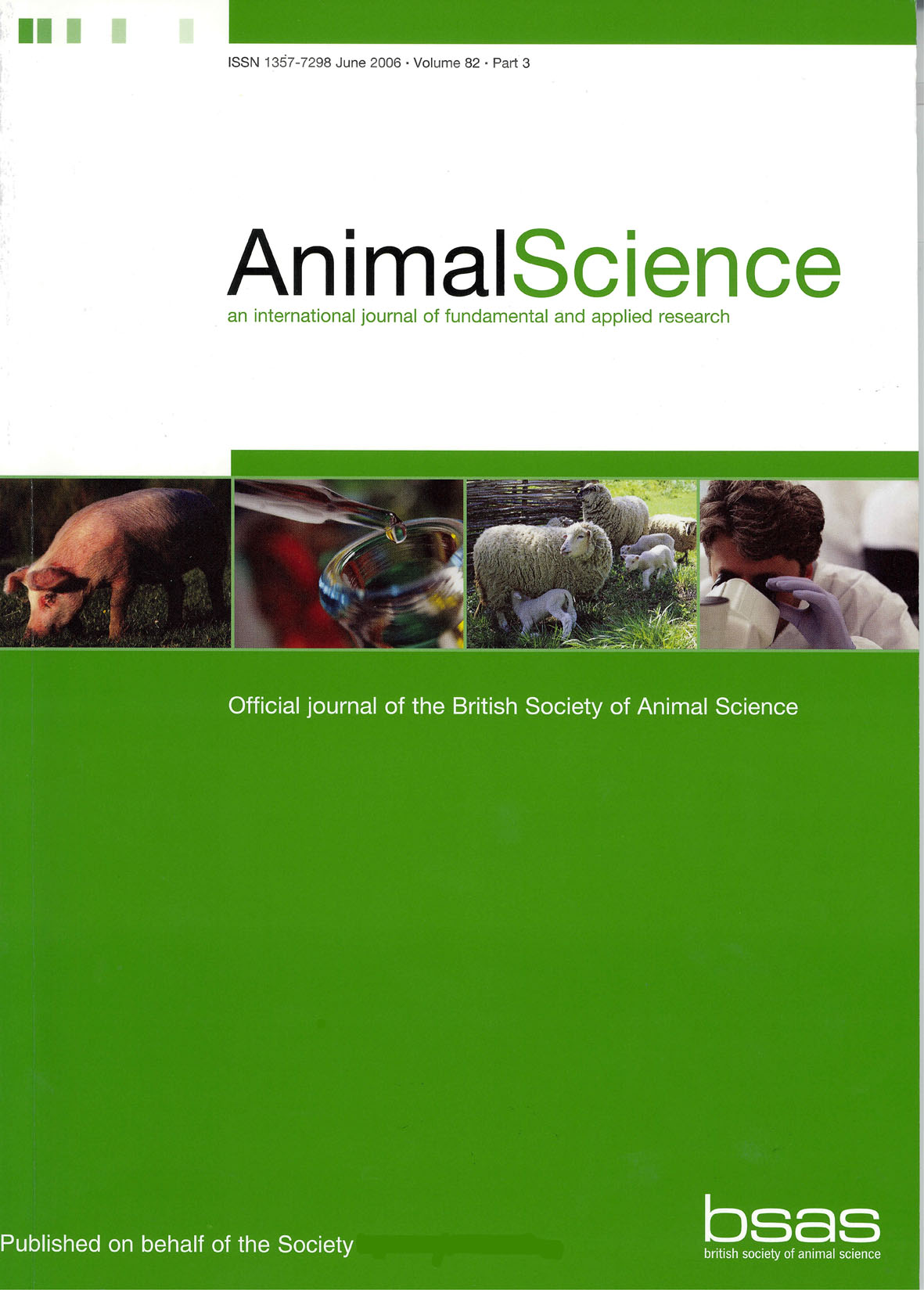Article contents
Growth rate and growth composition of artificially reared piglets from specific pathogen free sows
Published online by Cambridge University Press: 02 September 2010
Abstract
Heat production, energy and nitrogen balances of artificially reared piglets from specific pathogen free sows, housed in a respiratory chamber, were measured over five successive periods of 7 days each from 4 to 39 days of age. The experiment was carried out at an environmental temperature decreasing from 33 to 27°C. The mean weight increased from 1·5 (at day 4) to 11·9 kg (at day 39). Daily rate of gain increased from about 100 g in periods 1 and 2 to 502 g per piglet in the fifth period.
Daily protein deposition, as measured via nitrogen balance, increased from 17 to 96 g; fat deposition increased from about 0 to 100 g. Body composition at the start and end was determined by a comparative slaughter technique. Protein and fat content had a high correlation coefficient with body weight (R2 = 0·69 and 0·89, respectively). At birth these values were much lower, 0·24 and 0·01 for protein and fat, respectively.
Nitrogen balance compared with slaughter technique led to an overestimation for protein deposition of proportionately 0·07. Fat gain measured from slaughter was proportionately 0·08 lower than that calculated from energy balance.
Ratio of gain estimated from protein and fat gain with the balance technique relative to that measured ranged between 0·93 to 1·15 in various periods.
- Type
- Research Article
- Information
- Copyright
- Copyright © British Society of Animal Science 1993
References
- 2
- Cited by


